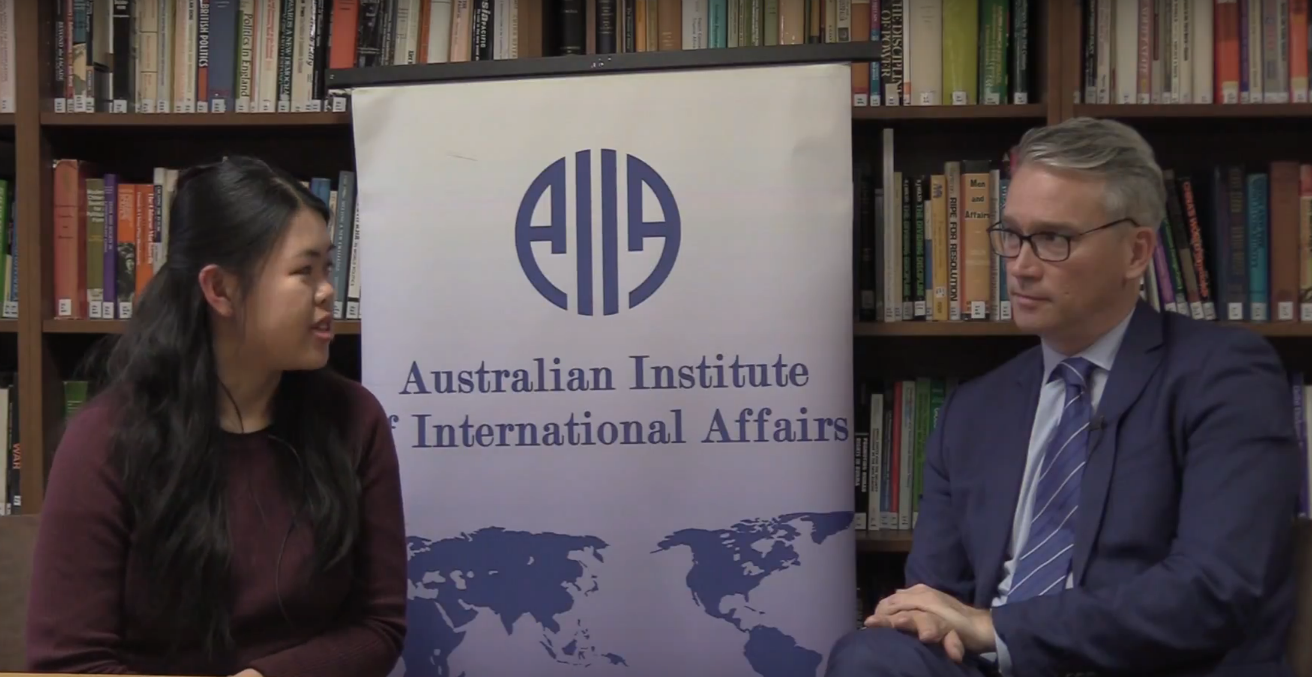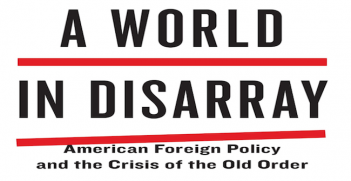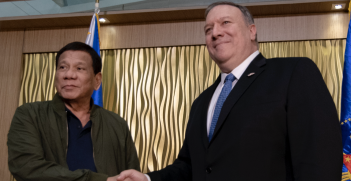The End of the Rules-based Liberal International Order

The American president is a symptom, not the cause, of the broader problems surrounding the deterioration of the liberal international order.
The conventional wisdom holds that, simply put, the post-war rules-based liberal international order is under siege thanks primarily to Donald Trump’s “America First” agenda. This is an explanation that distracts us from contemplating more uncomfortable possibilities, ones that might cast doubt on deeply-held convictions about international relations during the past several decades.
Why the conventional wisdom is wrong
The first point to bear in mind is that the conventional wisdom just assumes that the post-World War II order is the same as the post-Cold War order. This is mistaken. The US-led post-World War II order was a bounded order that was limited mainly to the western world and was built on a realist, not liberal foundation. The US-led post-Cold War world, on the other hand, has been international and liberal. With the collapse of the Soviet Empire, the US became the world’s most powerful nation and its leaders sought to transform the realist western order globally into a truly liberal international order.
However, the rules-based order began unravelling in the 2000s.
Have we forgotten the US-led invasion of Iraq, which spawned the Sunni rebellion that morphed into a plethora of Islamic jihadist movements while enhancing Iran’s strategic presence in the Persian Gulf? Far from incorporating the Middle East into the liberal order, the US and its allies have played a key role in spreading illiberal disorder in that region. Meanwhile, a nativist and xenophobic form of populism has been spreading across Europe. And that’s not to mention Russia’s incursion in Ukraine in 2014 or China’s military expansion in the South and East China Seas since 2012.
The upshot from all this is that the rules-based liberal international order was under siege well before Donald Trump’s debut on the global stage. Underlying all these debates about Trump is a broader issue at stake, one that American realists led by my friend and mentor John Mearsheimer have made: that the rules-based liberal international order contained the seeds of its destruction.
The flaws of the rules-based international order
There are several fatal flaws that have helped undermine the effectiveness of the rules-based international order from the outset. Here are six of them.
- Democracy is the wave of the future
In the 1990s, it was widely believed that there was no viable alternative to liberal democracy and that almost every nation in the world was bound to become a liberal democracy.
During the past decade, the number of liberal democracies has been declining, reversing a seemingly unstoppable trend. Indeed, some leaders today extol the virtues of illiberal democracy. This diversity of opinion about what constitutes the best political order means that it is going to be extremely difficult to create a world in which all the great powers are liberal democracies, and virtually impossible to fashion one in which almost all countries are liberal democracies.
- Global consensus
In the 1990s, it was widely believed that globalisation and economic inter-dependency would increase the prospects of international cooperation. However, there never has been and never will be anything approximating universal agreement on genuinely collective policy approaches. Nation-states do not act on the basis of good will or good intentions; they act on the basis of defending the national interest. In an increasingly multi-polar world, more states have effective veto power over collective action. This new pluralistic world has given rise to what New York Times columnist David Brooks has called “global-sclerosis”: an inability to solve problem after problem.
- Western unity
During the Cold War, the conventional wisdom held that “the West” was a given, a natural presence. However, as the distinguished Australian conservative Owen Harries FAIIA observed in Foreign Affairs magazine in 1993, the political West is not a “natural construct but a highly artificial one”.
In fact, notwithstanding the Cold War, the West has almost always been deeply divided politically: just think of Europe’s wars. For most of its history, the US has been deeply suspicious of, and hostile towards, European power politics, stressing its differences from the older continent.
The clash between Brussels and the most unsophisticated American leader in history will mark the breaking point in the political West.
- The end of nationalism
In the 1990s, it was widely believed that nationalism was a thing of the past. However, the decision of liberal states to delegate substantial power to the international institutions that comprise the liberal international order has led to a populist backlash. Because nationalism is all about self-determination and sovereignty, it does not fit with a situation where international institutions make policies that have a profound effect on their member states.
So, it is not surprising that the main reason a majority of British citizens voted to leave the European Union in 2016 is because they felt their nation had surrendered too much power to Brussels and it was time to reassert British sovereignty.
This logic also helps explain why Trump won power by running on an ‘America First’ campaign and slammed the key institutions that comprise the liberal international order, from NATO to the WTO.
- Co-operation among rival powers
In the 1990s, it was widely believed that the more China and Russia integrated into the global economy and became members of international institutions, the more they would become peaceful and even democratic.
However, China and Russia have resisted Washington’s efforts to spread the liberal international order. Xi Ji-ping is the most authoritarian leader since Mao and China is more assertive than ever. Putin is an authoritarian leader who will play hard ball to protect what the Kremlin sees as vital strategic interests in its near abroad. In particular, neither Beijing nor Moscow want US military forces in what they deem as their spheres of influence.
- US unipolarity
At the turn of the century, it was widely believed the US was seemingly invincible. If anything, America got mugged by reality.
The US has fought seven wars in the years since the Cold War ended – Gulf, Bosnia, Kosovo, Afghanistan, Iraq, Libya and Iraq/Syria – and it has been at war for three out of four years during that period.
Although the US possesses the military means to defeat any other country, there is not an American solution to every problem. To put it bluntly, Americans do not have the understanding of other societies and people, the attention span or staying power, to engage in an active, interventionist policy of nation-building and democracy-promotion on a large scale.
None of this is to deny US strengths. It remains the world’s largest economy and its lone military superpower. Its demographic trends are moving in the right direction.
All this is true enough, but it overlooks a larger point: the ‘Pax Americana’ had been waning for years before Trump arrived on the scene. What distinguishes Trump from his post-Cold War predecessors, however, is that he does not pay lip service to the notion of American global leadership. And without an activist and assertive US, there is no plausible way to uphold the rules-based liberal international order.
All these perhaps explain why so many western leaders are anxious, even defensive, about the state of the liberal international order. However, the rules-based international order frayed a long time ago. It was doomed from the start. And its underlying problems cannot be fixed.
Tom Switzer is executive director of the Centre for Independent Studies in Sydney. He is also a presenter of ABC Radio National’s program “Between the Lines.”
This article is an edited extract of Tom Switzer’s speech to AIIA ACT on 17 July 2018. It is published under a Creative Commons Licence and may be republished with attribution.
To hear his thoughts, you can also view an interview with Tom Switzer by former Australian Outlook editor Jasmine Gan.
Interview by Jasmine Gan.
Video and Photography by Tian Zhang.





